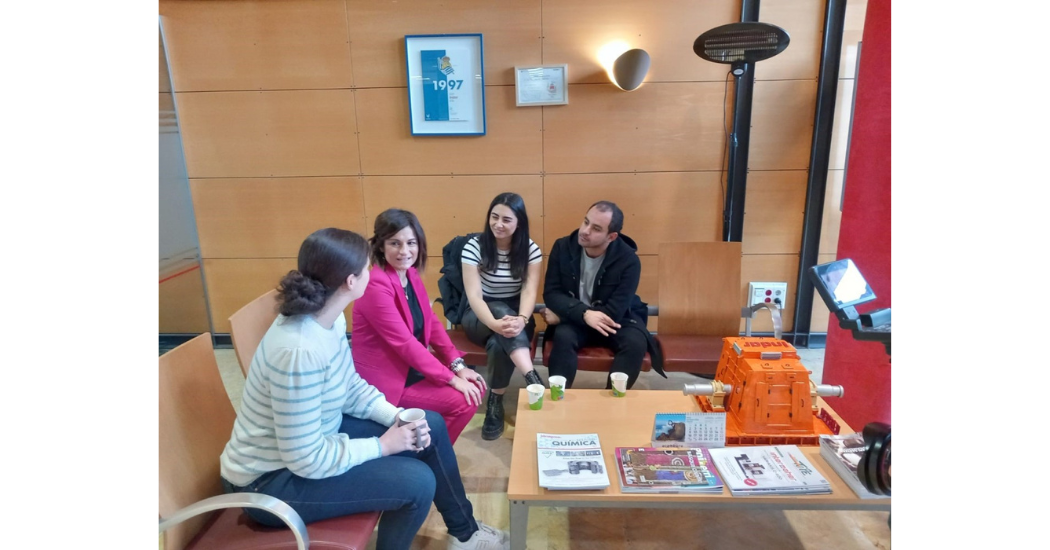Engineering is a field that challenges us to innovate, solve the unsolvable, and grow continuously. But let’s be honest: the journey can be tough, especially if you’re a young professional or a woman entering an industry where representation and support can sometimes feel scarce.
That’s where mentorship comes in. My mentors were pivotal to my career—they opened doors I didn’t know existed, offered perspectives that reshaped my thinking, and encouraged me to keep moving forward even when the path got steep. Many of my mentors weren’t even aware they were mentoring me; their dedication, hard work, and passion resonated deeply and continue to inspire the way I approach my work today. Now, as I find myself in a potential position to mentor others, I want to share some tips and resources that can help you grow as an engineer:

Ingeteam – January 2023
1. Seek Out a Mentor: A mentor doesn’t need to be a formal, assigned figure. Look for someone whose career or approach to problem-solving you admire. Don’t hesitate to reach out—many experienced engineers are more than willing to help guide the next generation.
Having the courage to ask someone to mentor you can feel intimidating, but it is one of the most effective ways to fast-track your development. Start by identifying potential mentors in your network, whether they are senior colleagues, professors, or professionals you admire in your field. Build a relationship by showing genuine interest in their work, and don’t be afraid to express how much you would value their guidance. Remember, mentorship is a two-way street—always show appreciation for their time and be willing to contribute where you can.

Ingeteam – 2023
2. Join Professional Communities: Whether it’s online forums, LinkedIn groups, or local engineering societies, getting involved in a community can provide both technical support and a sense of belonging. For young professionals and women in engineering, communities like SWE (Society of Women Engineers) and Empowering Pumps & Equipment can be incredibly valuable.
Connecting with like-minded professionals can be a game changer. These communities are often where job opportunities are shared, ideas are brainstormed, and moral support is found. By participating actively—asking questions, sharing your experiences, and offering support to others—you’ll not only expand your knowledge but also build strong relationships that could last throughout your career. Additionally, these communities often provide access to mentors, resources, and events specifically geared towards skill development and career advancement.
3. Soft Skills Are Key: Engineering is not just about technical expertise. Communication, leadership, and collaboration are crucial for career growth. Investing time in developing these skills can make all the difference when you’re aiming for leadership roles or complex project responsibilities.
To thrive in engineering, it’s vital to articulate your ideas clearly, work effectively in diverse teams, and inspire others. Soft skills are the bridge between technical solutions and practical implementation. If you aspire to lead projects or teams, focus on improving your public speaking, negotiation skills, and your ability to give and receive feedback. You can take online courses, join Toastmasters, or practice these skills in low-stakes environments. Remember, technical know-how gets your foot in the door, but soft skills will open many more doors for career advancement.
4. Learn to Learn: The field of engineering is ever-evolving. The ability to learn quickly and adapt is a critical skill. Embrace challenges and seek out resources—whether that’s online courses, webinars, or even books—to stay current and build new expertise.
A curious mindset is one of the most powerful tools an engineer can have. Embrace lifelong learning—treat every project, every challenge, and every failure as an opportunity to grow. Platforms like Coursera, edX, and LinkedIn Learning offer valuable courses in both technical and soft skills. Dedicate time each week to learning something new, whether it’s related to engineering or a skill that broadens your perspective. Staying adaptable and keeping your skills sharp are the best ways to ensure a thriving career in an industry that’s always changing.
5. Find Your Allies: Especially for women in engineering, finding allies—both men and women—who are advocates for diversity, equality, and inclusion can help create a supportive work environment where you can thrive.
Having allies at work means having people who will amplify your voice, support your ideas, and advocate for you when you are not in the room. Look for individuals in your workplace who are aligned with your values and goals. Make it a point to build authentic relationships with them—becoming an ally yourself by supporting their initiatives and championing their successes. Remember, inclusion is a collective effort. By fostering an environment of support, we can create workplaces where everyone feels empowered to succeed.
To all the young engineers and aspiring professionals out there: don’t be afraid to reach out, ask questions, and keep pushing boundaries. And to those of us who are more experienced, let’s keep paying it forward.
Mentorship can be one of the most rewarding experiences, not just for those receiving guidance but also for those giving it. There is immense satisfaction in helping someone else navigate the challenges you’ve already overcome. Let’s create a future in engineering that is inclusive, supportive, and filled with opportunities for everyone to excel.
I’d love to hear from you:

Zarautz 2021
What’s the best piece of career advice you’ve received?
And how do you support the next generation of engineers?




